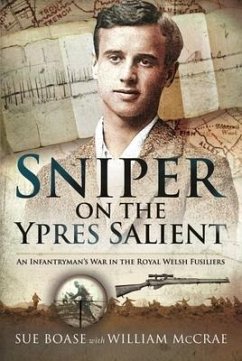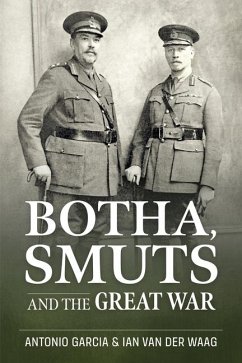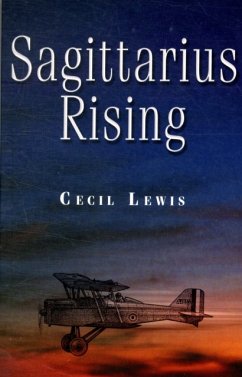
From War Hero to Peace Promoter
The True Story of Siegfried Sassoon
Versandkostenfrei!
Versandfertig in über 4 Wochen
31,99 €
inkl. MwSt.

PAYBACK Punkte
16 °P sammeln!
In 1917, Siegfried Sassoon defied military authority by refusing further service and condemning Britain's war aims, risking court-martial. On 13 July 1917 a thirty-year-old junior officer on leave from the Western Front arrived at London's Euston Station, with its famous arch and great hall. Siegfried Sassoon was heading for Liverpool on a journey likely to end in his arrest. His destination was the headquarters of his battalion. A week earlier he had written to tell his commanding officer that he was refusing further military service. He enclosed a statement written to be read out in Parliame...
In 1917, Siegfried Sassoon defied military authority by refusing further service and condemning Britain's war aims, risking court-martial. On 13 July 1917 a thirty-year-old junior officer on leave from the Western Front arrived at London's Euston Station, with its famous arch and great hall. Siegfried Sassoon was heading for Liverpool on a journey likely to end in his arrest. His destination was the headquarters of his battalion. A week earlier he had written to tell his commanding officer that he was refusing further military service. He enclosed a statement written to be read out in Parliament declaring that Britain's war aims were no longer worthy. He was committing, as he admitted', 'an act of wilful defiance of military authority'. He was ready to face court-martial and imprisonment (or worse). He was known in the Army as a brave and efficient soldier, already decorated and now recommended for a DSO. His speciality was in bombing. Now he had delivered a bombshell of a different kind. He hated what the war had become. He had lately turned his poetic talent into a new kind of satire. A recent composition, 'The One-Legged Man', was about what soldiers yearned for: 'a Blighty wound' to take them home to safety. The poem ends: 'He hobbled blithely through the gate; And thought 'Thank God they had to amputate'. Sassoon wanted a fair peace settlement to end the war, as did his friends in the House of Commons. There were possibilities. The day before he caught his train, the German Reichstag had passed a declaration demanding 'peace with no annexations and no indemnities' if agreed to by Britain and its Allies and followed through this would mean a settlement including German withdrawal from all occupied territory. These were days of drama for a soldier - and perhaps for the world. This book tells Sassoon's story.












